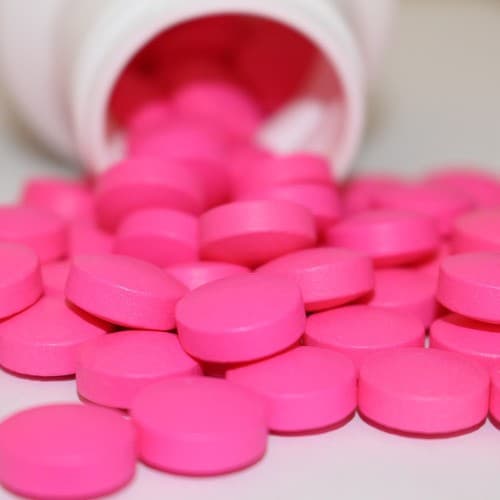COMPLICIT

The Australian medical profession is complicit in the over-prescription of opioid painkillers. This shocking claim has been made to Industry Update by more than one sufferer during our research into the scale of the nation’s over-use of prescription medications and its implications for workplace health and safety.
Significant numbers of workers throughout manufacturing industry may be affected by an epidemic that is statistically more likely to affect the employed than any illicit drug problem.
There is no denying that prescriptions for opioid painkillers have skyrocketed during the last decade. Data from the Pharmaceutical Benefits Scheme show that the number of scripts issued for oxycodone more than doubled between 2010 and 2015. And there is no more recent data available to suggest that the trend has changed.
Elsewhere in this issue, health professionals such as GP Dr Andrew Pennington and Senior Anaesthetist Dr Rowan Molnar, have told Industry Update that the profession has finally come to the conclusion that opioid painkillers are not effective for the relief of chronic pain.
Yet some practitioners are continuing to prescribe them in ever-larger doses, leading ever-increasing numbers to suffer the consequences of dependence.
One of our interview subjects, known only as Roger M, has survived the complete cycle of over-prescription, dependency and withdrawal. And he feels that the health system failed him at multiple stages during his journey.
“I had been prescribed Endone for acute pain that would occasionally strike due to a congenital condition, but I only needed it a few times a year, and it worked just fine,” says Roger.
But when his condition worsened, and the pain became chronic, Roger baulked at the idea of taking daily doses of Endone. He sought medical advice, and his GP assured him there would be no problem with taking the painkiller daily.
He was wrong. After five weeks of daily doses, Roger M had become opioid dependent, despite his GP’s assurance that it would be OK to increase the frequency of his medication.
That was two years ago, and it is only now that Roger can bring himself to talk about his ordeal.
His first step on the road to recovery was an overnight visit to a dependency clinic, where he was switched from Endone to the lesser opiate Suboxone and closely monitored for side-effects. The substitution worked.
Roger M then found himself in the care of a consultant psychiatrist specialising in withdrawal management. Roger felt that the high dose of Suboxone he was still being prescribed was beginning to have side effects – notably depression, from which he had never suffered before – and he requested to start reducing the dosage.
Rather than support Roger in his self-driven quest to reduce his medication input, the consultant psychiatrist vetoed the idea and prescribed an additional antidepressant.
The holiday season intervened, and Roger took the downtime from work to cut his Suboxone dose in half – from the legal maximum 32mg to just 16mg. And after the five-week break, his body had fully adjusted to the new lower dose, and the depression had lifted.
Roger’s next consultation with the consultant was not a good one. The consultant insisted that Roger redouble his dosage back to the maximum, and despite repeated requests, would only issue a repeat prescription for 32mg Suboxone – effectively forcing him back to his high level dependence and depression.
It was at that point that Roger, in desperation, sought a second opinion, and changed to a different health practice with strongly contrasting views on withdrawal management. And, with their support, over ten months he has been able to reduce his Suboxone dose to the point where today he has no need of it.
Not surprisingly, he feels let down by the system, and he can see how others might not be able to break free.
“Surely, they should be moving towards getting people off it,” he says. “But if the system is set to keep people on it then this shows an attitude that is morally and ethically wrong. And that should not be allowed to happen.”
“It shows just what people are up against,” he adds. “Even when they go for help to get off something that doctors had badly prescribed to start with, the system is completely against them. I can see why people feel hopeless and helpless as they want you to feel that way to keep you under control.”
The problems of prescription opioid dependence are not unique to Australia. The situation in the USA has been thrown into the spotlight recently with a pledge of action from President Trump, and last month’s arrest of the former CEO and six other executives from Insys Therapeutics, all charged with bribing doctors to prescribe the opioid drug fentanyl.
And while nobody is suggesting that activities like that are going on in the Australian health system, it does seem that some members of the medical profession have an agenda other than the long-term wellbeing of their patients.





